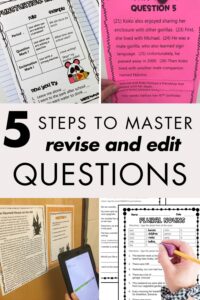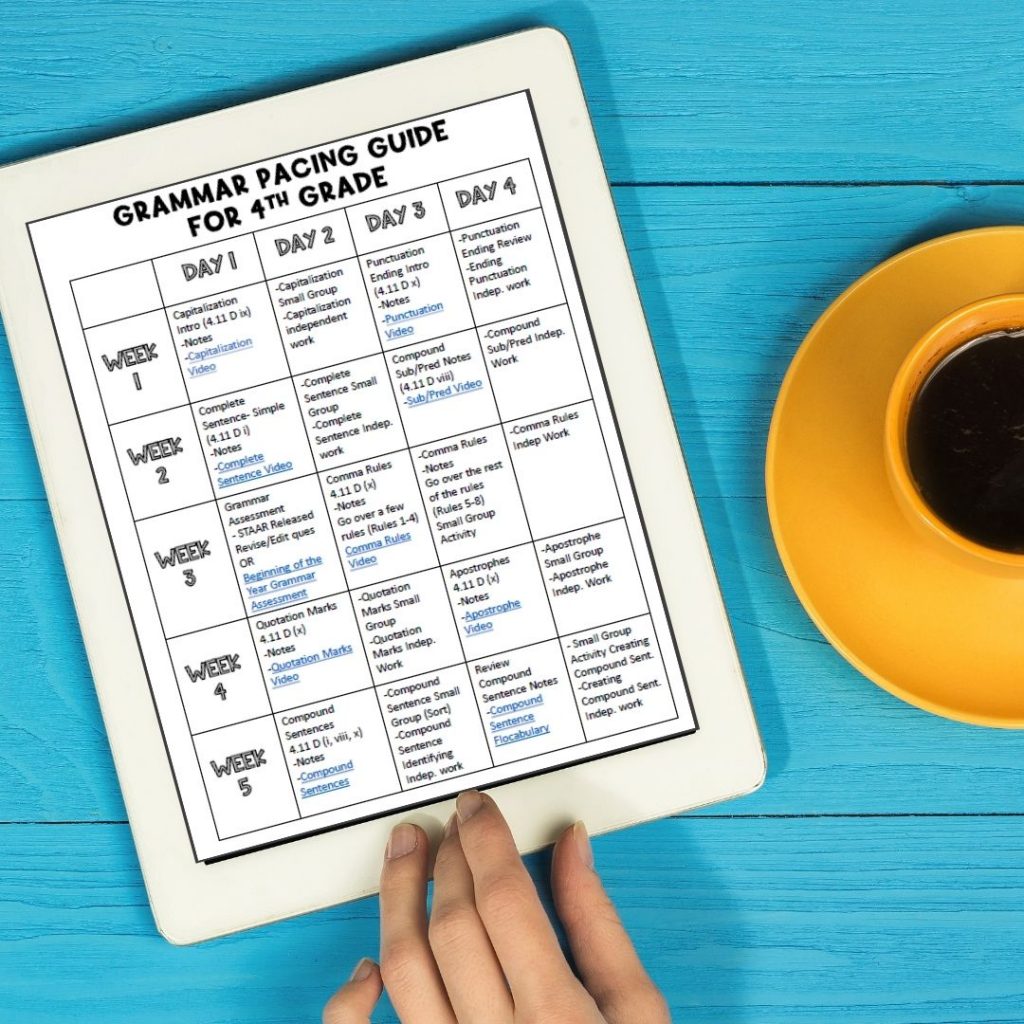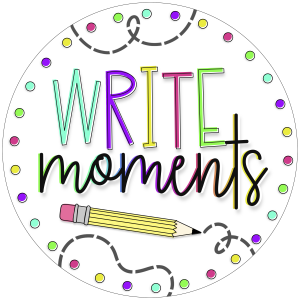Start the year off WRITE!
August can be a crazy time of the year! Beginning of the year writing lesson plans may be the last thing on your mind.
It’s so important to start the year with rules, procedures, building relationships, and creating a classroom community. Then what?
It’s time to start teaching! Teachers struggle with teaching writing because there is a lack of support and materials in the subject area compared to reading and math.
Keep reading for a few key steps to starting off your beginning of the year writing lessons plans.
Assessment
Starting the year with assessments is not fun for teachers or students, but it is necessary. You have to know where your students are academically, so you can narrow in your teaching.
Especially, with our previous year ending in distance learning, students will be all over the place with what they have learned and retained.
Start with a Beginning of the Year Grammar Assessment. Use the data to create your grammar lessons based on what your students’ strengths and weaknesses.
Of course, you want to go over all grammar skills that are included in the TEKS (or your state’s standards), but you want to spend more time on the areas that are weaker for your whole class.
If you notice just a few students struggling with a particular grammar skill, a small group can be formed for a quick reteach lesson of that skill.
In addition to a grammar assessment, students should complete a writing sample. As you grade the writing samples, you will be able to see where your students are in their writing.
Since fourth grade students in Texas take the STAAR Writing Test, they are required to write an expository essay. I always have students write an expository paper for their writing sample.
The prompt I use is: Write about how you felt on the first day of school and explain why you felt that way.
However, you can choose any prompt for your beginning of the year writing sample. Just be sure it’s easy enough for all students to have something to write about.
For example you could use: Write about something you did this summer.
Make a Plan

Once you have analysed the data, you can start planning your writing lessons.
Start off with simple grammar concepts and the writing process.
I like to heavy load grammar lessons in the first six weeks, so then students can use the grammar rules in their writing and while answering revise and edit questions.
If you would like to see an example of the order I teach my grammar lessons, just fill in your information below and a FREE grammar pacing guide will be in your inbox!
Grammar
As a grammar lesson is taught, students put the rule in their STAAR Writing Notebook. Therefore, these grammar rules can be referenced throughout the year.
Hands-on grammar activities are crucial in order for students to retain the grammar rules. After the game is played in small groups, it can be put into a writing station.
For more information on grammar activities, check out my Grammar Games Blog Post.
Additionally, Grammar Practice Pages can be used for a quick assessment and grade. Although practice pages are not fun, they are a quick way to see if your students understand the rule. You can then use that information to pull a small group to reteach grammar skills.
Writing Process
It is important to walk students through the writing process before they write their first formal written composition.
To start, introduce a topic with a mini lesson. Be sure students put the notes in their writing notebooks, so they can reference them as they write independently. .
They should watch the teacher use the skill, then practice the skill in whole group or in partners, and then attempt the skill in their own paper.
Be sure to start at the beginning of the writing process. Here are a few examples of beginning of the year writing mini lessons: brainstorming, prewriting, rough draft, introductions, transition words, revise/edit, peer editing, final copy.
Writing Conferences
The key to developing your students’ writing is to have individual writing conferences with them.
During the writing conference, pick one or two (at the most) particular writing skills you want the student to work on.
For instance, if you notice the student needs to add punctuation to their sentences. You can direct them to those notes in their writing notebook, practice a few sentences with them, and then let them try it on their own.
If you notice a student has done a wonderful job with conventions and spelling. Then you can help them with adding more details to their writing.
You’ll notice during the writing conference each student will gradually become a better writer.
Starting the year on the WRITE track will definitely benefit the teacher and the student. Just take small steps in your beginning of the year writing lesson plans. Don’t stress too much because you will be able to cover it all!






